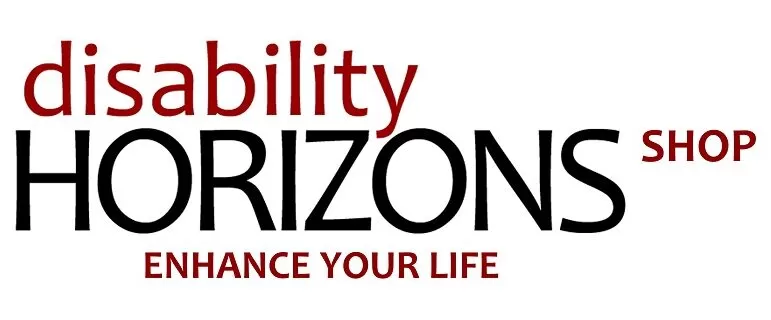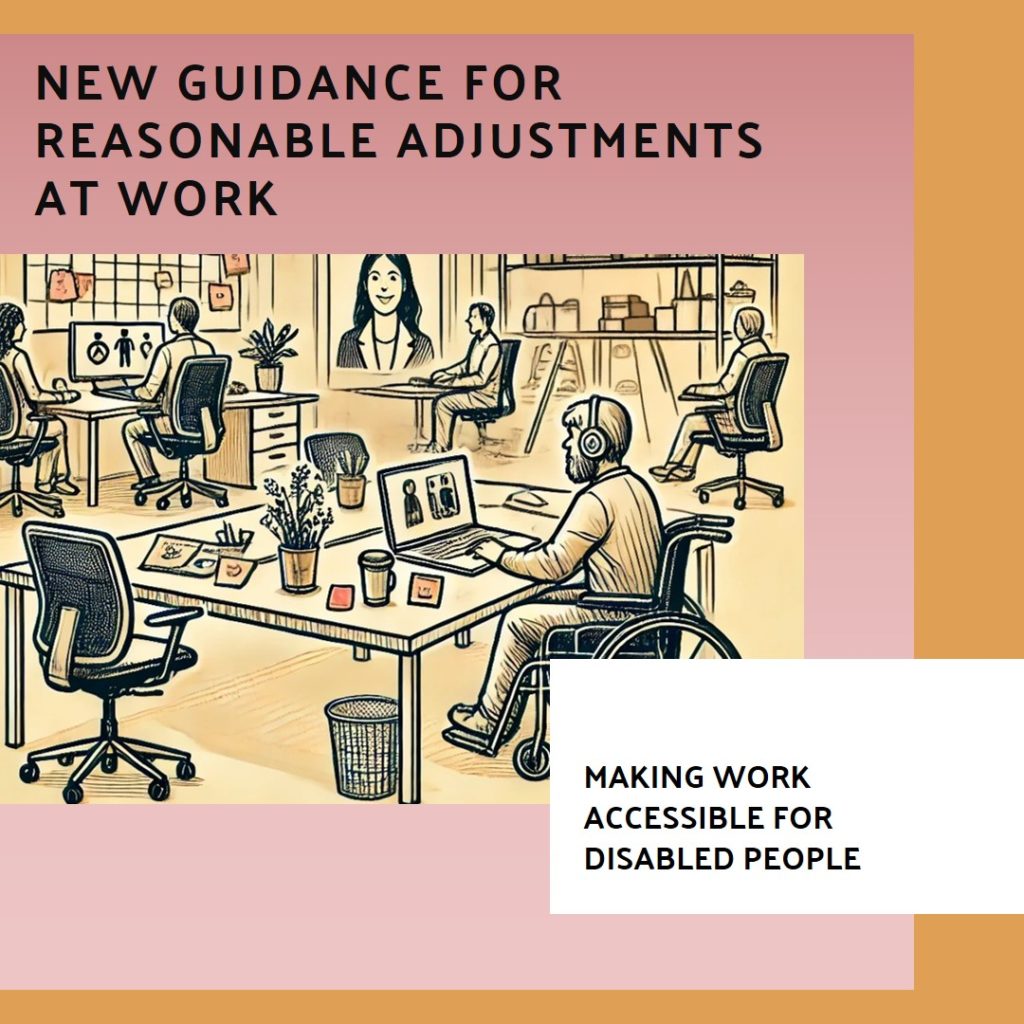Understanding the New EHRC Guidance on Reasonable Adjustments for Disabled Employees
The Equality and Human Rights Commission (EHRC) has recently published new guidance to help employers understand their legal obligations and the steps they can take to support disabled employees, especially in hybrid working environments. This guidance comes as a crucial resource for organizations aiming to create inclusive workplaces that accommodate the needs of all employees.
From 6 April 2024, new flexible working laws allowed employees to request permanent changes to their job contracts from their first day at work. Employers must be ready to handle these requests more flexibly. Employees can ask to change how long, when, or where they work without explaining how their request might affect the business or suggesting solutions. It is important to handle these requests fairly, remembering that you can only refuse a request for one of eight specific business reasons. This change highlights the need for a more inclusive and flexible approach to managing staff, in line with the new EHRC guidance on supporting disabled employees in a hybrid work setting.
The Eight Reasons a request may be refused:
Employers can refuse an application for any of the following reasons:
extra costs that will damage the business
the work cannot be reorganised among other staff
people cannot be recruited to do the work
flexible working will affect quality
flexible working will affect performance
the business will not be able to meet customer demand
there’s a lack of work to do during the proposed working times
the business is planning changes to the workforce
Why Reasonable Adjustments Matter
Reasonable adjustments are changes or modifications made in the workplace to help disabled employees perform their jobs effectively. These adjustments can range from modifying work hours to providing specialized equipment or making alterations to the physical work environment. By implementing reasonable adjustments, organizations ensure that their disabled colleagues can work in an environment that meets their needs and supports their success.
Nick Emmerson, President of the Law Society of England and Wales, emphasized the importance of these adjustments:
“Implementing reasonable adjustments is important for organizations, as it ensures our disabled colleagues can work in an environment that meets their needs.”
Evidence from the Legal Profession: A Need for Greater Inclusion
Research from Cardiff University and the Law Society’s Disabled Solicitors Network, titled “Legally Disabled?”, provides clear evidence that disability has often been overlooked in diversity and inclusion efforts within the legal profession. This research underscores the importance of proactive steps to address these gaps and create a more inclusive environment for disabled employees.
The Law Society welcomes the EHRC’s new guidance, which provides practical tips for employers on how to create a supportive working environment. This includes:
- Identifying appropriate technology to help disabled employees work flexibly, whether in the office or remotely.
- Adopting best practices for digital accessibility to ensure that all employees can access the necessary tools and resources.
- Providing real-life examples of how organizations have successfully embedded disability inclusion.
Law Society’s Guidance on Reasonable Adjustments
In addition to the EHRC guidance, the Law Society has its own resources on reasonable adjustments and digital accessibility. These resources provide practical examples of how law firms and in-house teams have successfully implemented disability inclusion.
The Law Society’s guidance includes:
- Case studies from law firms that have made adjustments to support disabled employees.
- Best practices for organizations looking to enhance their disability inclusion strategies.
- Tools and resources to help employers understand their obligations under the Equality Act 2010.
To explore the Law Society’s guidance in detail, visit their page on reasonable adjustments for disability inclusion.
 Eight Reasons Why Reasonable Adjustments Should Be a Priority
Eight Reasons Why Reasonable Adjustments Should Be a Priority
The Law Society provides comprehensive guidance on why organizations should prioritize reasonable adjustments for disabled employees. Here are the eight key reasons:
- Fulfilling Legal Obligations
Employers have a legal duty under the Equality Act 2010 to make reasonable adjustments for disabled employees to remove or reduce any disadvantage they might face in the workplace. By proactively fulfilling this obligation, organizations minimize the risk of legal action and demonstrate compliance with the law. - Improving Retention and Recruitment
Making reasonable adjustments helps retain talented disabled employees and attracts new talent from a diverse pool. Disabled professionals are often overlooked due to misconceptions about their ability to perform job functions. By removing barriers and providing necessary accommodations, employers enhance their reputation as inclusive and supportive, which can significantly improve recruitment and retention rates. - Enhancing Employee Engagement and Productivity
Reasonable adjustments enable disabled employees to work to their full potential, leading to higher engagement and productivity levels. When employees feel supported and valued, they are more likely to be motivated, committed, and productive, resulting in better overall performance for the organization. - Fostering a Diverse and Inclusive Culture
Implementing reasonable adjustments is a crucial step towards fostering a genuinely diverse and inclusive workplace culture. It helps challenge stereotypes and reduce the stigma associated with disabilities, creating an environment where all employees feel valued and respected for their unique contributions. - Promoting Innovation and Problem Solving
A diverse workforce that includes disabled employees brings varied perspectives and experiences to the table, which can enhance innovation and problem-solving within an organization. By ensuring disabled employees have the support they need, organizations benefit from a broader range of ideas and approaches. - Improving Client Relationships and Business Outcomes
An inclusive workforce can better reflect and understand the needs of a diverse client base, leading to stronger client relationships and improved business outcomes. Clients and customers increasingly expect businesses to be socially responsible and inclusive, making this an important consideration for maintaining a positive brand reputation. - Reducing Absenteeism and Employee Turnover
Reasonable adjustments can help reduce absenteeism and employee turnover by addressing the specific needs of disabled employees, thereby reducing stress and health-related issues. This, in turn, can lower recruitment and training costs, and maintain continuity within teams. - Demonstrating Corporate Social Responsibility (CSR)
Prioritizing reasonable adjustments shows that an organization is committed to social responsibility and values diversity and inclusion. This enhances the organization’s reputation among clients, customers, employees, and the wider community, reinforcing its status as an ethical and socially responsible business.
Real-Life Examples of Reasonable Adjustments
The Law Society’s guidance includes real-life examples of reasonable adjustments that organizations can implement to support disabled employees. These examples provide practical insights into how law firms and in-house teams have successfully embedded disability inclusion into their workplaces:
- Flexible working arrangements: Allowing remote work, flexible hours, or part-time work for employees who may need it due to their disability.
- Assistive technology: Providing screen readers, voice recognition software, or other adaptive devices to help employees perform their tasks effectively.
- Workplace modifications: Making changes to office layout, installing ramps, or ensuring accessible restrooms to accommodate physical disabilities.
- Communication support: Offering sign language interpreters, captioning services, or accessible formats for all communications.
- Training and awareness programs: Educating all staff on disability inclusion and creating a culture that values diversity and understanding.
Key Takeaways for Employers
- Stay informed: Keep up to date with the latest guidance from EHRC and the Law Society to understand your legal obligations.
- Implement technology solutions: Utilize technology that supports flexible working arrangements for disabled employees.
- Foster an inclusive culture: Encourage open dialogue about disability inclusion and make reasonable adjustments a standard practice.
- Leverage available resources: Use the practical tips and examples provided by EHRC and the Law Society to improve workplace accessibility.
The new guidance from the EHRC is a vital step towards ensuring that all workplaces are inclusive and accessible to disabled employees. By implementing reasonable adjustments, organizations can foster a more diverse and inclusive culture, benefiting everyone.


 Eight Reasons Why Reasonable Adjustments Should Be a Priority
Eight Reasons Why Reasonable Adjustments Should Be a Priority